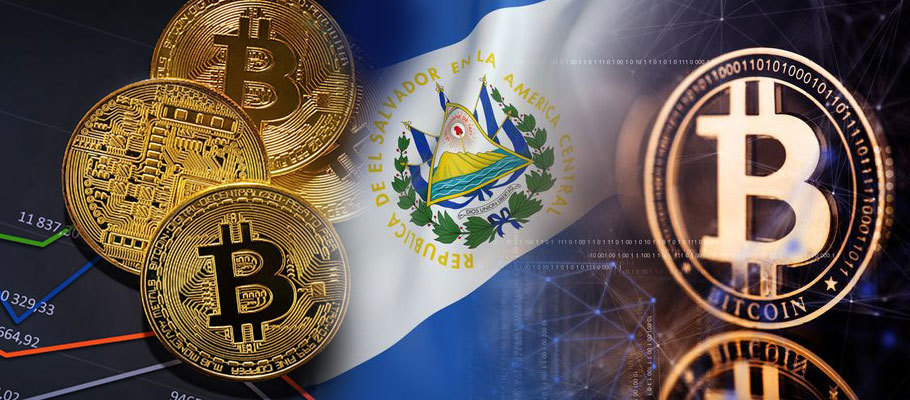
Published: June 12th, 2021
The government of El Salvador voted through a bill this week to recognise Bitcoin as legal tender.
President Nayib Bukele announced on his Twitter feed that he had tabled a "Bitcoin Law" to the legislature for debate and a final vote. It was discussed and approved in a matter of hours, giving Bitcoin the legal tender status and compelling the Central American country’s merchants to accept it for payment.
Congressman Chris Guevara told Reuters that ‘of all many decisions we will take in this legislative session, the Bitcoin Law may turn out to be the most important.’ It’s worth noting the government is also considering the country's 2021 budget this week.
The move makes El Salvador the first country on Earth to give Bitcoin legal tender status, putting it on par with the greenback as a currency in El Salvador.
The law requires that prices across the country be published in Bitcoin, alongside mandatory acceptance for any purchase.
For cash-only businesses in remote areas that lack the technical infrastructure for electronic transactions, the law exempts them.
The new law makes clear that the BTC exchange rate will fluctuate in accordance with the market. It also stipulates that a dedicated trust be launched in the country’s Development Bank to ensure that exchange between BTC and USD happens without delay.
Any financial operations conducted with Bitcoin, such as crypto and forex trading, will be exempt from capital gains taxes — at least for now.
American Bitcoiners preparing to claim the IRS’s $200 tax exemption for foreign currencies on Bitcoin transactions should probably hang fire, at least for now.
With Bitcoin securing its first formal recognition as legal tender, some US crypto traders think the change will have favourable tax implications.
Last week, a Reddit post suggested Bitcoin becoming legal tender could have ‘significant tax and reporting implications for US forex traders.’ It made the case that the Internal Revenue Service (IRS) may now have to treat Bitcoin like any other foreign currency, triggering a standard USD 200 tax exemption on any BTC transaction.
IRS watchers, however, have been keen to downplay the likelihood of a ‘BTC tax break’.
A rule in US tax legislation does allow a USD 200 personal tax exemption for any gains from transactions in foreign currencies (meaning currencies granted the status of legal tender in any jurisdiction).
But it only applies to gains from currency fluctuations that occur when a personal transaction has happened, like buying a smoothie or a new jacket. It likely does not apply to crypto or other kinds of financial trading.
Bitcoin has been irrelevant to the rule up to this point because it hasn’t had legal recognition as a foreign currency. That means if you do use Bitcoin to buy a jacket or smoothie, you have to pay 37 per cent capital gains tax — if the difference between how much you pay for a BTC and how much you cash out for results in again.
Since the vast majority of trading and investing in Bitcoin happens on transactions for profit rather than personal purchases, the speculation around a USD 200 tax exemption for Bitcoiners is probably whistling in the wind.
Suppose Bitcoin does become a foreign currency under the US tax definition. In that case, any trading or investment gains will be taxable at the IRS’s highest statutory rate for individuals, regardless of the amount of time it’s held. That would mark a massive change from the current tax treatment of Bitcoin, which assesses a lower rate for assets that sit untouched for more than a year.
For most Bitcoiners, the current capital gains tax law is probably better. The tax rates are lower than they would be if Bitcoin starts being defined as ordinary money.
In 2014, the IRS issued an edict defining cryptocurrencies as ‘property’ instead of currency for the purposes of federal income tax. The agency noted that cryptocurrencies aren’t considered legal tender in any country, a necessary precondition for being considered a foreign currency by the IRS.
Analysts don’t believe the IRS will suddenly change its tax rules for Bitcoin just because a small country like El Salvador has made it a legal tender. In trading terms, El Salvador is a minnow compared to whale-sized markets like the European Union or Japan.
If more countries declare BTC to be legal tender, a real possibility in other Central American countries and elsewhere, only then would the IRS reconsider its stance.
But it’s worth remembering that the IRS could decide to ignore Bitcoin as currency for tax purposes for other reasons, organised crime and money laundering concerns, for starters.
America’s Financial Crimes Enforcement Network (FinCEN) uses a definition of currency that could be problematic for BTC enthusiasts. For example, it stipulates that for money to be a currency, it has to be used and accepted as a medium of payment in the issuing country.
Bitcoin, of course, has no country; and the IRS defines money in the narrow sense of printed bills and minted coins. Even if the El Salvadoran government started mining Bitcoin, current rules and regulation would still rule out BTC as a foreign currency.
The agency could also rely on conventions such as currencies being ‘fully backed by the faith and credit of the sovereign.’ With its decentralised nature, Bitcoin simply doesn’t qualify.
The IRS has yet to issue a statement specifically on the El Salvador move, and the US Treasury has so far declined to comment on the issue.
It’s not unusual for the IRS, one of Washington’s biggest and most powerful agencies, to take ages before making a new tax decision, so Bitcoiners eager for a tax exemption may have a wait on their hands.